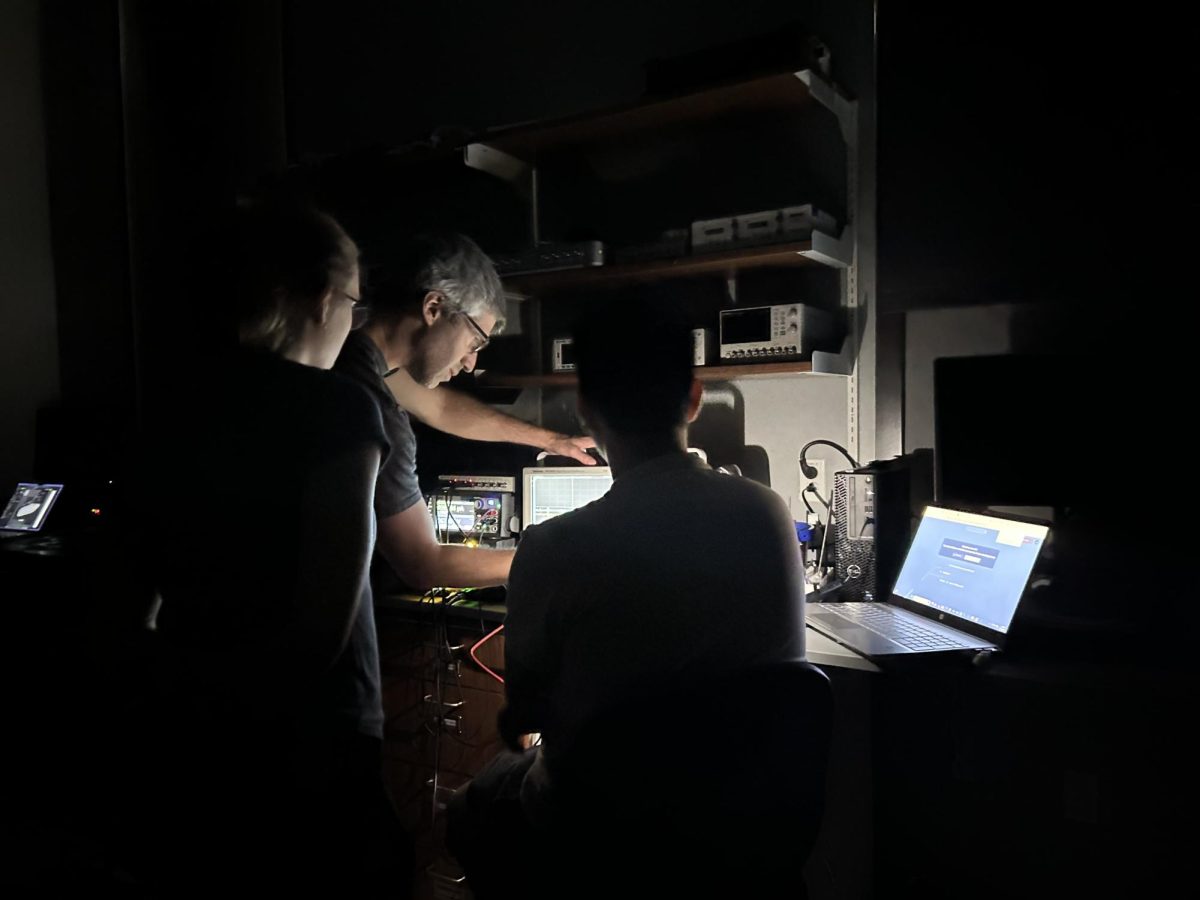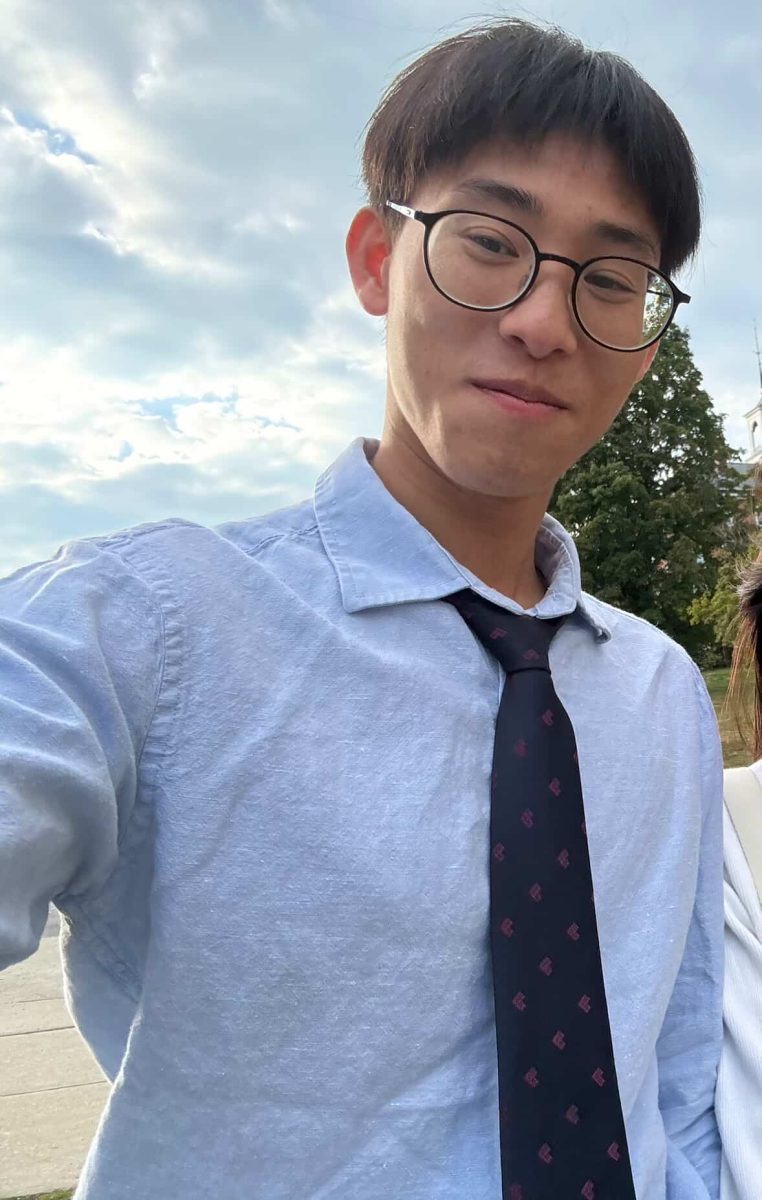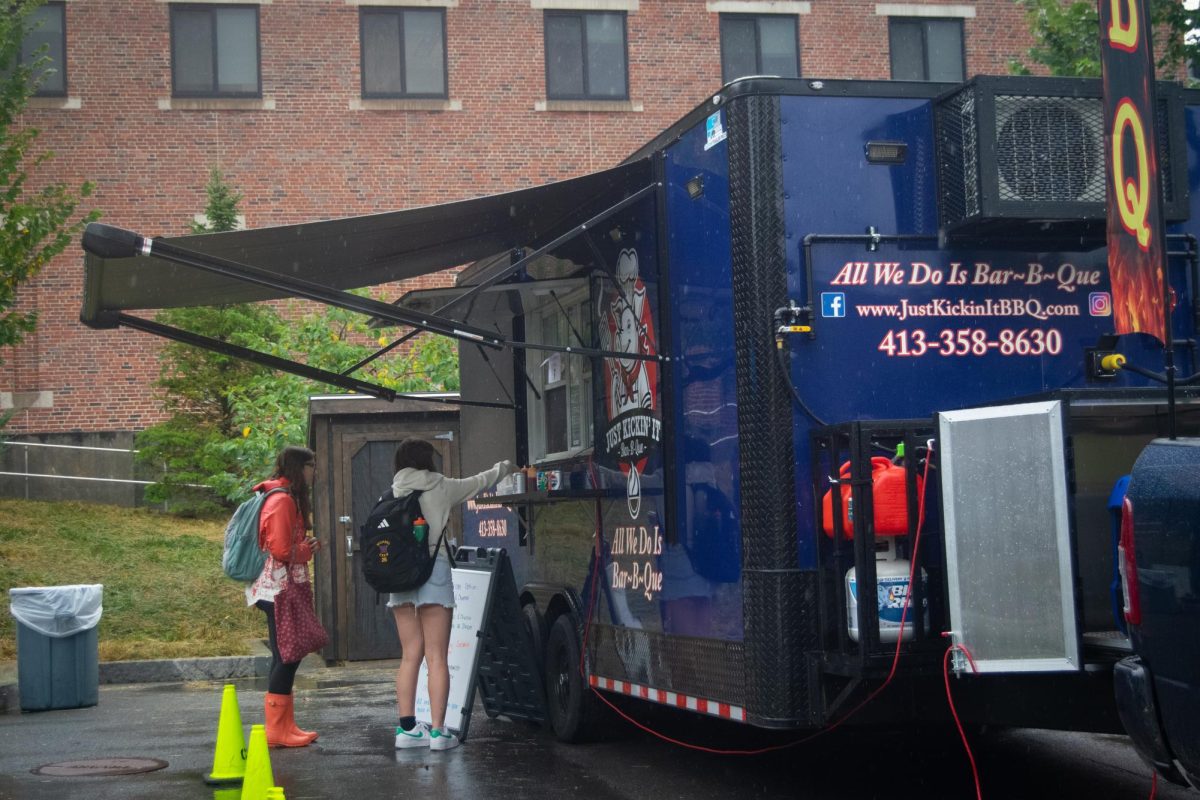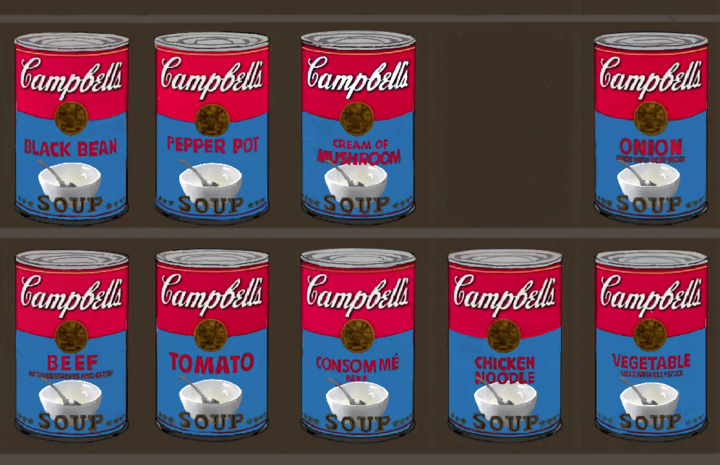
After former president Donald Trump won the presidential election and Republicans gained control of the Senate last Tuesday, the future of our nation may seem uncertain. But Oren Cass ’05, the founder and chief economist of the right-wing think tank American Compass, knows where he’d like it to go.
Cass founded American Compass in 2021 in response to what he saw as the Republican Party’s lack of attention to working-class issues — despite the fact that such issues were central to Trump’s election in 2016.
“Whatever one thinks of Trump, he clearly identified and spoke to a lot of problems that everybody else was ignoring,” Cass told the Record in an interview. “I think most people on the right of center’s reaction to that was, ‘This is stupid. These aren’t problems. Make him go away.’ And my reaction was like, ‘Wow, no, this is really important. These are really big problems, and conservatives are going to have to have something to say about them.’”
He described how Republicans tended to want to return to pre-Trump policies rather than build on the popular momentum that Trump had garnered. “So we founded American Compass,” he said. “If no one else would do it, then we would be the institution to say, ‘No, we take these problems seriously as our starting point and are going to try to figure out where we go from here.’”
Since then, the think tank has clashed with the old-school, libertarian economic philosophy that has dominated the GOP since Ronald Reagan’s presidency. American Compass instead emphasizes worker-focused policy and rejects “blind faith in free markets.”
“We have a very explicit mission to change the way people think about economics,” Cass said.
“There is this very entrenched orthodoxy — still like the 1980 Ronald Reagan playbook — that ossified and then started to crumble,” Cass explained. “One piece of what we’re doing [at American Compass] is giving that a really good, hard kick to make sure it crumbles completely.”
While the nonprofit does not directly engage in political campaigns, it has the potential to play a major role in shaping the policy of the next four years. “The work that we’ve done that has been most valuable is in actually laying the groundwork for a policy agenda, for a coherent narrative of what’s wrong and what should be done about it,” Cass said.
The incoming administration will face an ongoing ideological battle within the GOP. “The question of what comes next is a very live and contested debate,” he said. “What I will say about our vision and the coalition that we work with most closely is that I think [American Compass] probably has the most coherent and developed theory of the case.”
As the debate ensues, American Compass may have an ally in the executive branch in Vice President-elect J.D. Vance, whom Cass described as ideologically aligned with the mission of American Compass.
“I used to say he and I have been on somewhat parallel tracks, but he’s now the vice president, and I’m still sitting here in my dog sweaters,” Cass said. He also cited Senators Marco Rubio, Tom Cotton, and Josh Hawley and Senators-elect Bernie Moreno, Jim Banks, and Dave McCormick — who he described as the “future of the Republican party” — as congressional allies. With Trump expected to name Rubio secretary of state, American Compass will see another ally in the president’s cabinet.
During his time at the College, Cass majored in political economy. He expressed nostalgia for the intellectual climate at the College in the early 2000s.
“It was a time when, generally, people still understood that there were two sides to an issue for the most part,” he said. “There wasn’t the sort of ‘cancel culture’ attitude — that the other side is invalid or dangerous or violent in some way. And it wasn’t the sort of thing that really, I think, affected friendships and the social dynamics.”
Cass noted that his experiences both inside and outside of the classroom opened his eyes to ideological diversity. “It wasn’t until I got to college that I discovered I wasn’t the only person who thought the New York Times editorial page is full of morons,” Cass said.
Both parties have lessons to learn from this election, he said. “I think what Republicans are going to learn first and foremost is that the Donald Trump coalition is a better coalition for them going forward than the Mitt Romney-Paul Ryan coalition,” he said. “Trump’s win in 2016 against Hillary [Clinton] was not some flash in the pan — it’s actually something that’s quite stable and can be added to.”
“As for the Democrats, the question is whether they have learned anything,” he continued. “Yelling at people for not agreeing with you and saying that ‘You will destroy democracy unless you vote for me’ are not viable election strategies.”
“It’s not clear to me that there’s any real thought going on yet about the more fundamental sacrifices and concessions that the left is going to have to make,” he noted. “Typically, I think it takes a pretty catastrophic political loss before a party figures that out.”
Despite the ideological chasm and hostility between Democrats and Republicans, Cass affirmed the possibility of bipartisanship in the coming years, highlighting family policy, infrastructure, and U.S.-China relations as three areas in which the nation may see bipartisan political action.
“In 2007, and again in 2013, we almost got comprehensive immigration reform — that ain’t happening anytime soon,” he said. “But conversely, on something like industrial policy and infrastructure bills — you know, the CHIPS Act — you now have a growing Republican constituency that wants to do this stuff too, and that’s where there’s been agreement.”
American Compass supported the 2022 CHIPS Act, which invested nearly $53 billion to bring semiconductor supply chains back to the United States and which President Joe Biden has touted as a major achievement for restoring domestic manufacturing.
“I think family policy is one where you also already are seeing a lot of progress,” Cass said. “It hasn’t become law yet, but the Wyden-Smith Tax Relief bill got 350 votes, including 80 percent of Republicans, for a major expansion of the Child Tax Credit.”
Cass emphasized the realignment of the Republican party as a potential opportunity for cooperation across the aisle.
“This is where my military metaphor is really well developed: It’s like you go through a period in politics where you really have trench warfare, and both sides are just totally dug in, and no one is ever going to make any progress,” Cass said. “Realignment is basically a new attack — like coming in from a completely different angle — and it creates totally new areas of agreement. It also creates new areas of disagreement.”
Cass noted that American Compass has a marked lack of emphasis on classic “culture war” issues that have grown to define the right, which he said has likely helped them engage in productive work with both parties.
“We try to take what [conservative] groups who are very concerned about social issues would want to see as an economic agenda and bring that back into the conversation,” Cass said. “We work with a lot of progressive groups, and I think it’s very constructive to be a group where you don’t have to worry that you’re going to get canceled if you work with us.”
While the organization’s staff is small, its “membership group” is composed of over 200 young policy professionals largely based out of Washington, D.C., whom Cass described as “the cream of the crop.”
“It’s not that we have won, or are the dominant view, or anything like that,” he said. “But I’d rather be us than anyone else.”








